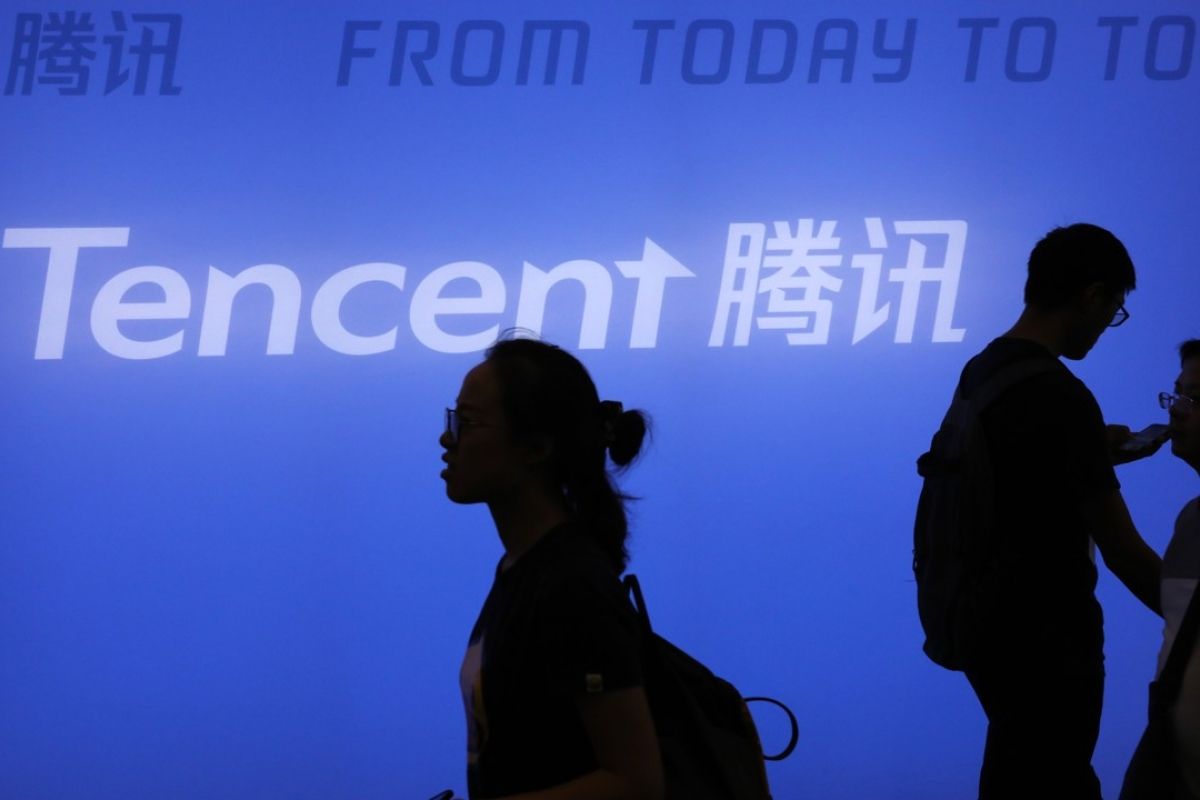Tencent to invest US$70 billion to advance tech infrastructure in China

A few minutes every morning is all you need.
Stay up to date on the world's Headlines and Human Stories. It's fun, it's factual, it's fluff-free.
Chinese tech giant Tencent plans to invest 500 billion yuan (US$70 billion) over the next five years towards making advances in cloud computing and artificial intelligence (AI).
The company will focus other investments towards digital infrastructure such as blockchain technology, Internet of Things, quantum computing, 5G mobile networks and the construction of a new network of data centers containing more than one million servers each.
Tencent also plans to work with scientific research experts to tackle scientific issues and help in the formulation of industry standards.
Tencent operates China’s largest social media platform, WeChat, as well the world’s largest gaming business by revenue.
These planned investments highlight the company’s expansion into other business territories and are in line with China’s push for investment in new technological infrastructure in areas such as cloud computing, AI, autonomous vehicles and 5G mobile networks.
Investments in these areas would lead to increased competition in the emerging technologies field between some of China’s other tech giants, such as Alibaba and Baidu.
Tencent’s share in China’s cloud market grew to 18% in the fourth quarter of 2019, behind Alibaba which has over 46% of the market share.
Last month, Alibaba announced that it would be investing US$28 billion into its cloud infrastructure over the next three years.
First quarter growth pushed by gaming
While most businesses in China and across the globe have suffered economic pressure as a result of the COVID-19 pandemic, Tencent posted a 26% growth in sales in the first quarter as coronavirus confined consumers to their homes, leaving them with more time to play Tencent’s smartphone and PC games.
The company did experience some setbacks, such as in cloud computing, which has struggled in China compared to in the West where the pandemic has created a surge in demand. But the company’s value-added services (VAS) business segment, comprising its online and mobile games, as well as video and streaming services, have boosted sales.
Tencent’s video game heavy VAS grew 27%, posting 62.4 billion yuan (US$8.7) in first quarter revenue, which accounted for 58% of the company’s total first quarter revenue.
Meanwhile, Tencent’s number of video subscribers grew to 112 million and its music streamers to 43 million.
Tencent invests heavily in Japanese game developers
To deal with the increase in demand for gaming content, Tencent has recently made investments to increase its content pool, investing in Japanese video game developer PlatinumGames for an undisclosed amount and this week spent 7 billion yen (US$65 million) through affiliate Image Frame Investment for a 20% stake in another Japanese game developer, Marvelous.
Tencent already has collaborations with other game developers, such as US-based Riot Games, Epic Games, Glu Mobile and Activision Blizzard.
The collaboration with Activision Blizzard resulted in Tencent’s most successful gaming effort to date, “Call of Duty: Mobile,” which is estimated to have been downloaded 148 million times on Apple’s App Store and Google Play in October of last year.
Tencent’s collaboration with Marvelous and PlatinumGames will open opportunities for Tencent to expand its influence in Japan, while also giving the developers more capital to further develop their gaming franchises.
The hunt for new content has also recently led Tencent to bring aboard high profile gaming industry veterans Scott Warner, Halo 4’s lead designer, and Ken-Ichiro Imaizumi, a founding member of Kojima Productions.
Have a tip or story? Get in touch with our reporters at tips@themilsource.com
Sign up for daily news briefs from The Millennial Source here!




Comments ()